Taishang, a city in southern China, is located just over an hour’s drive away from the nearest urban center. This picturesque town is known for its quaint community house, where elderly men gather every afternoon. As you stroll through the streets, you might come across some fat chickens leisurely wandering around.
Amidst this serene setting, one house stands out with a sleek black Tesla Model Y parked in front of it. The owner, Sun Hesheng, a 56-year-old businessman specializing in exporting plastic hair clips, recently purchased this cutting-edge electric vehicle for his son, Sun Yajun. Although Sun Hesheng appreciates the Tesla Model Y for its cost-effectiveness compared to gasoline cars, it’s the stylish design and high-tech features that captivate his son. “Tesla is incredibly futuristic and stylish,” exclaimed the 20-year-old.
Sun and his Tesla are part of the electric car revolution that has engulfed China. According to BloombergNEF, China has sold a staggering 18 million electric vehicles since the beginning of 2017, accounting for nearly half of the global total and four times more than the United States. Researchers predict that by 2026, over 50% of new passenger car sales in China will be electric, compared to just over 1/4 in the United States.
This surge in electric vehicle adoption has not only helped Chinese companies establish dominance in the global electric vehicle supply chain but has also sparked ramifications far beyond the automotive industry.
“Every vehicle that runs on electricity instead of gasoline contributes to the decline of fossil fuel-powered cars. If China’s electric vehicle market continues to grow at its current pace, it will undoubtedly have a substantial impact on global oil consumption,” explained Robert Brecha, a sustainability professor at the University of Dayton in Ohio.
As the world’s largest crude oil importer, China’s insatiable demand for oil has contributed to soaring international oil prices, benefiting oil-rich regions such as Texas and the Middle East. Nearly half of China’s total oil consumption is attributed to the transportation sector. Therefore, as the number of electric vehicles on Chinese roads continues to rise, the demand for fuel is expected to plummet. Analysts and industry executives predict that China might reach its peak oil consumption soon, potentially even this year.
However, some argue that predictions of China’s peak oil demand may be premature. In 2017, the China National Petroleum Corporation projected that final annual consumption would reach 690 million tons. The following year, this figure was revised to 700 million tons, and then further increased to 740 million tons. The most recent projection now stands at 780 million tons, signaling a continuous upward trend.
The prospect of peak oil consumption in China is contingent upon the continued rise in electric vehicle adoption. However, this is not guaranteed. For electric vehicles to truly dominate the Chinese market, they must transcend the realm of city cars and serve as a viable option for all social strata throughout the entire country.
There is already a diverse array of electric vehicles available in China, catering to different needs. From the luxurious Yangwang SUV, boasting an impressive range of up to 1,000 km on a single charge, to the affordable Wuling Hongguang Mini, capable of traveling approximately 120 km when fully charged. For our test drive, Bloomberg reporters chose the BYD Qin, an entry-level electric sedan.
During the test drive, a Bloomberg reporter stumbled upon a gas station in Shanghai that featured not only traditional gasoline and diesel pumps but also around 20 electric vehicle charging stations. This highlights how even conventional fuel companies are embracing the future of electric cars.
Zhang, an employee at the charging station, mentioned that the cost of charging electric vehicles has significantly increased over the years. With electric cars charging around the clock, it’s not uncommon to see drivers taking a break and smoking while waiting for their batteries to reach full capacity. In fact, the charging area and gasoline pump area had to be physically separated by a concrete wall to ensure safety.
“Gasoline cars will soon be obsolete. The world will be dominated by electric vehicles,” asserted Zhang.
While driving around China, Bloomberg reporters noticed that gas stations equipped with electric vehicle charging stations, like the one managed by Sinopec, are becoming the norm rather than the exception. Currently, China boasts approximately 2.5 million public charging stations, the highest number in the world.
Li Yong, a driver who regularly commutes hundreds of kilometers in his Changan Auto electric MPV to deliver his farm’s meat products in Anhui Province, shared that the switch from gasoline to electric vehicles has resulted in an approximately 80% reduction in fuel costs.
“I’ll never go back to using gasoline cars. Electric vehicles are both convenient and cost-effective,” declared Li as he charged his vehicle at a station in Hefei.
Going back to the Taishang area, it’s highly likely that more residents will join the electric vehicle revolution. A group of primary school students gathers around Sun’s parked Tesla, excitedly pressing the hidden door handle, causing it to elegantly pop out. Sun Hesheng loads a large cloth bag filled with tiny hair clips into the back of his small work truck. He drives this truck approximately 10,000 km per year to transport the hair clips, costing him around 8,000 yuan annually. His son recently informed him that the cost of owning an electric vehicle could be as low as 1,000 yuan.
“If my son’s electric vehicle experience turns out positively, I might consider replacing my truck with another electric vehicle,” Sun contemplated.
Trang Nguyen (Forum.autodaily.vn)
Source: Bloomberg




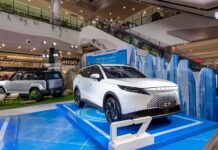



















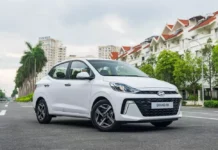
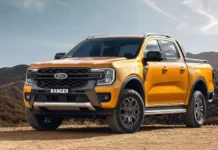
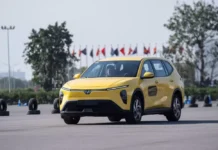
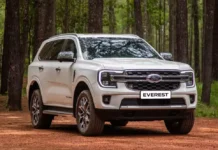



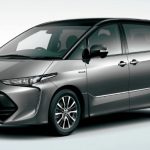
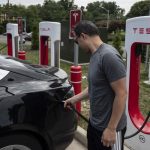
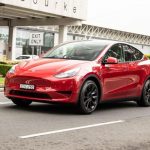

![[Quick Review] Hyundai IONIQ 5 – A Vehicle from the Future](https://vnauto.net/wp-content/uploads/2023/10/xehay-hyundaiioniq5-18052022-2-150x150.jpg)











